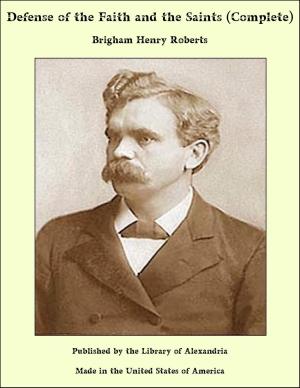The Better Germany in War Time: Being Some Facts Towards Fellowship
Nonfiction, Religion & Spirituality, New Age, History, Fiction & Literature| Author: | Harold W. Picton | ISBN: | 9781465597397 |
| Publisher: | Library of Alexandria | Publication: | March 8, 2015 |
| Imprint: | Language: | English |
| Author: | Harold W. Picton |
| ISBN: | 9781465597397 |
| Publisher: | Library of Alexandria |
| Publication: | March 8, 2015 |
| Imprint: | |
| Language: | English |
One kind of German has been too often described, and not infrequently invented. I propose here to describe the other German. At a military hospital a lady visitor said to the wounded soldiers: “We’ve had lots of books and tales of horror; why don’t some of you fellows prepare a book of the good deeds of the enemy?” There was a slight pause. “Ah,” said one of the soldiers, “that would be a golden book.” Very imperfectly, and in spite of all the barriers raised by war passions, I have tried to collect some of the materials already to hand for such a book. In any quarrel it is difficult to recognise that there is good in one’s opponent. Yet in order that any strife may be wisely settled, this recognition is plainly necessary. Mere enmity, without recognition of good, belongs to primitive barbarism. It was against the foolish unpracticality of this older barbarism (not surely only against its wickedness) that Christ protested in the words, “But I say unto you, love your enemies.” He saw around him the folly and unenlightenment of the perpetual feud. I have collected the testimonies that are in the following pages because such facts seem to me to need wider recognition, if we are ever to gain an outlook upon a fairer and a truer world. If my desire for peace has anywhere shown itself unduly, or in a way irritating to others, I ask forgiveness. Whenever peace is made, the world will need a peace built on all the facts of human nature. I have tried to give here some of those which war passions inevitably obscure. That is the whole of my task.
One kind of German has been too often described, and not infrequently invented. I propose here to describe the other German. At a military hospital a lady visitor said to the wounded soldiers: “We’ve had lots of books and tales of horror; why don’t some of you fellows prepare a book of the good deeds of the enemy?” There was a slight pause. “Ah,” said one of the soldiers, “that would be a golden book.” Very imperfectly, and in spite of all the barriers raised by war passions, I have tried to collect some of the materials already to hand for such a book. In any quarrel it is difficult to recognise that there is good in one’s opponent. Yet in order that any strife may be wisely settled, this recognition is plainly necessary. Mere enmity, without recognition of good, belongs to primitive barbarism. It was against the foolish unpracticality of this older barbarism (not surely only against its wickedness) that Christ protested in the words, “But I say unto you, love your enemies.” He saw around him the folly and unenlightenment of the perpetual feud. I have collected the testimonies that are in the following pages because such facts seem to me to need wider recognition, if we are ever to gain an outlook upon a fairer and a truer world. If my desire for peace has anywhere shown itself unduly, or in a way irritating to others, I ask forgiveness. Whenever peace is made, the world will need a peace built on all the facts of human nature. I have tried to give here some of those which war passions inevitably obscure. That is the whole of my task.















